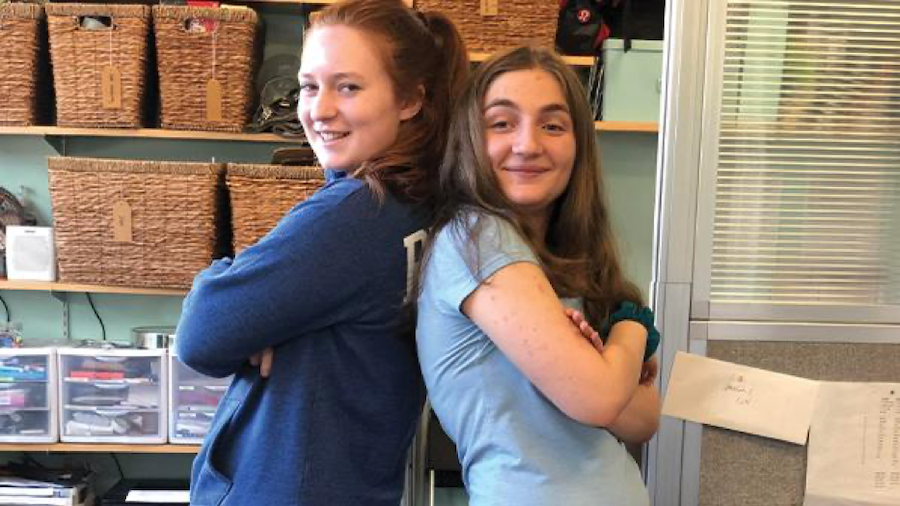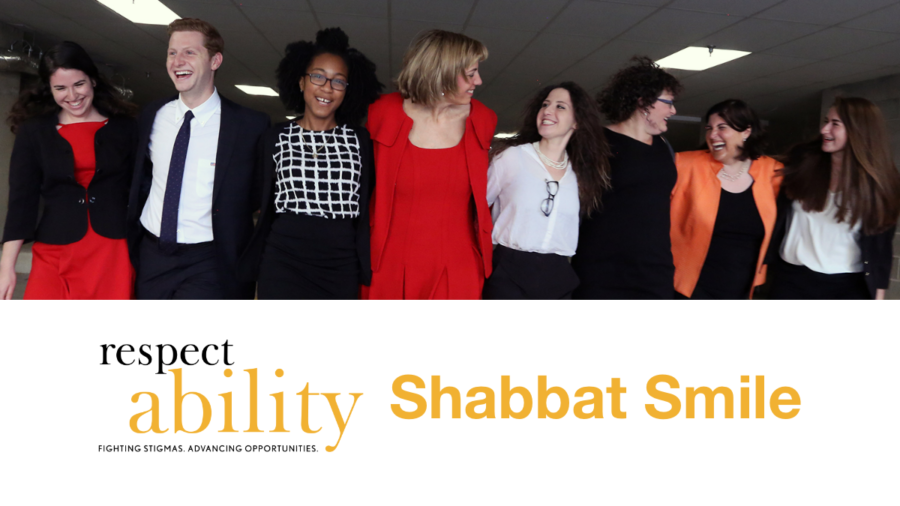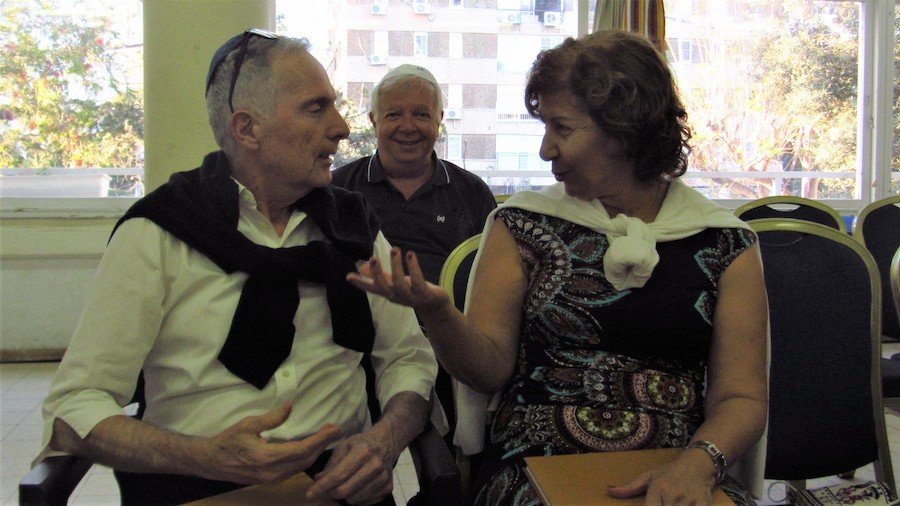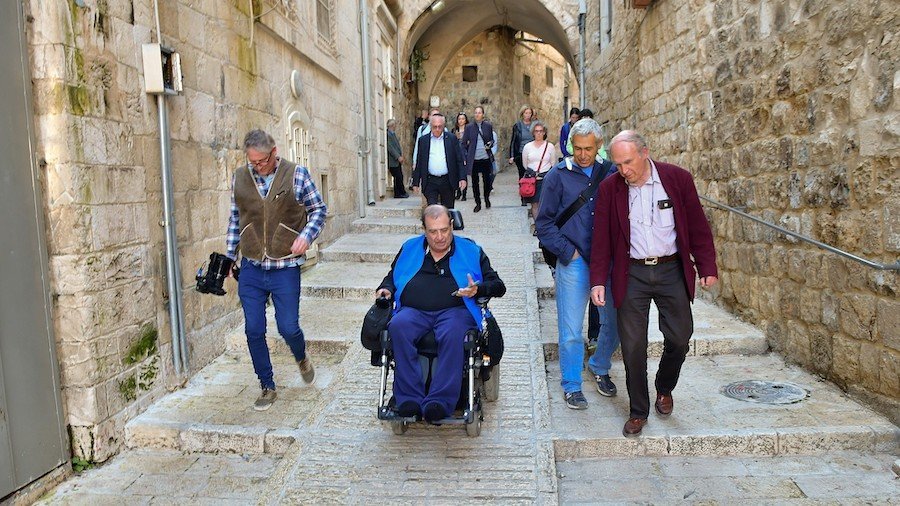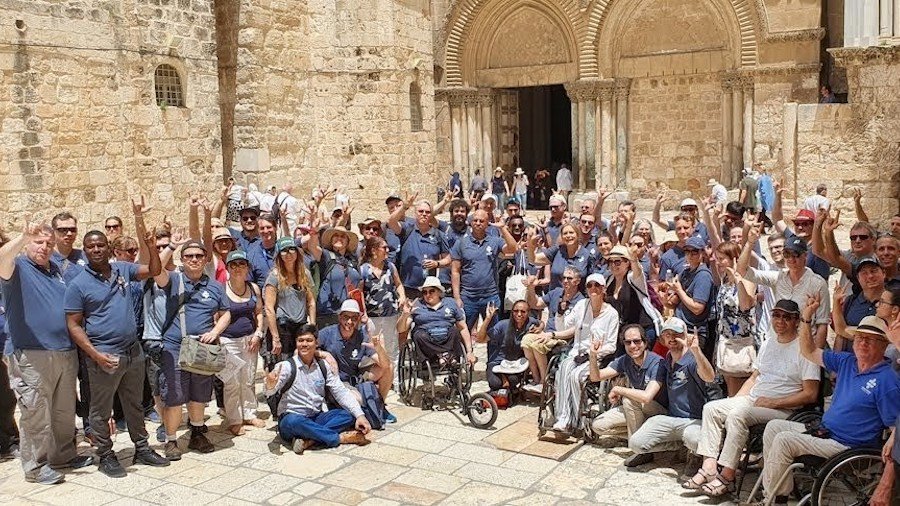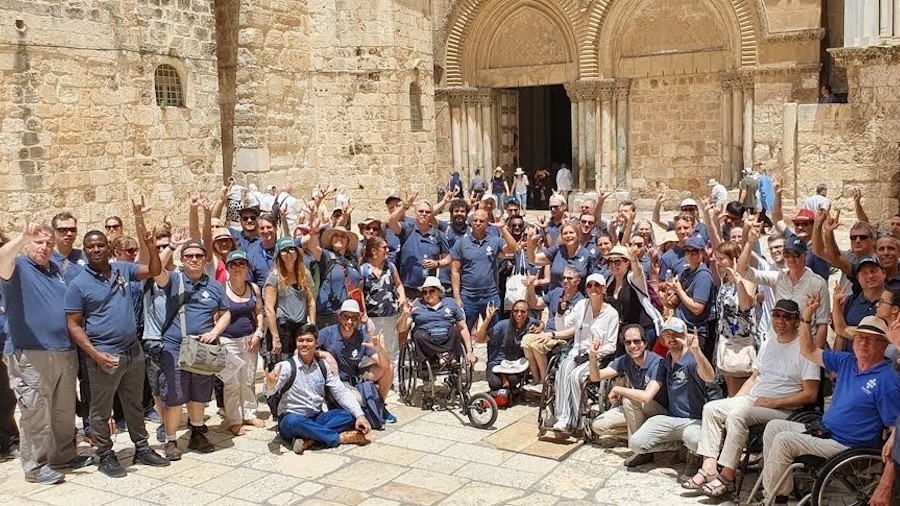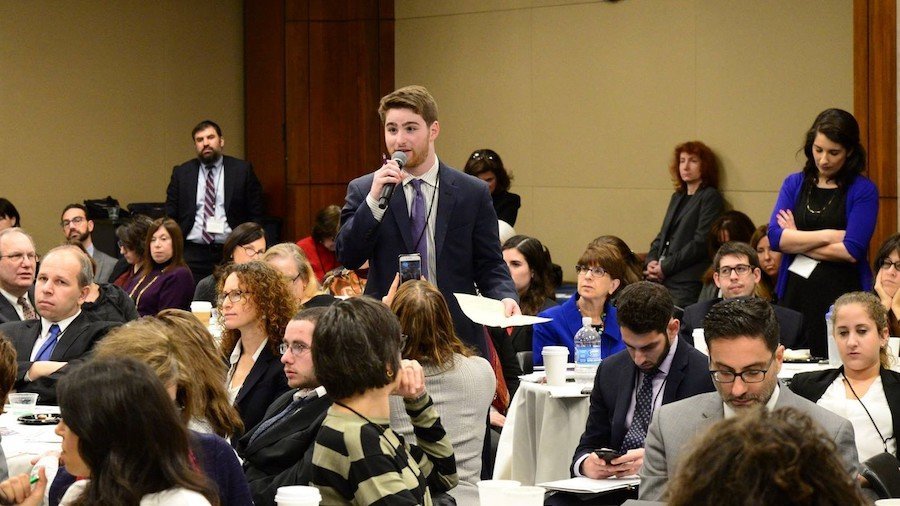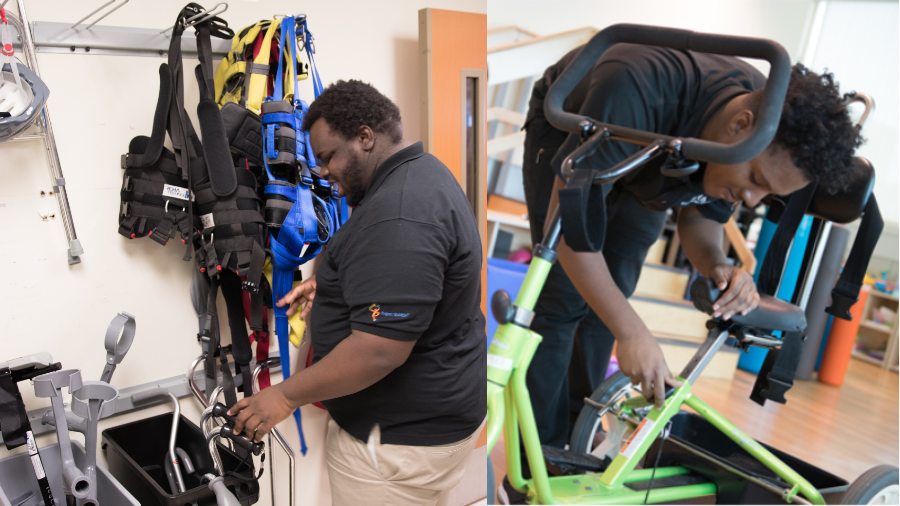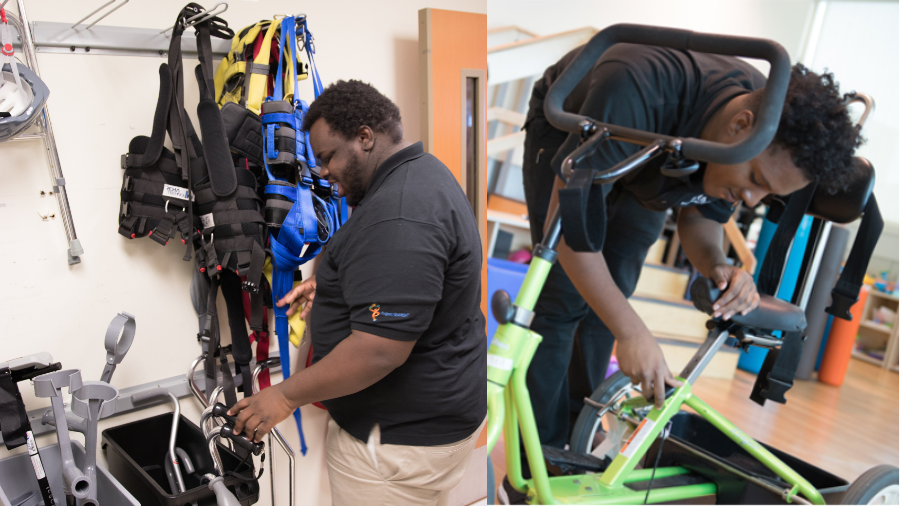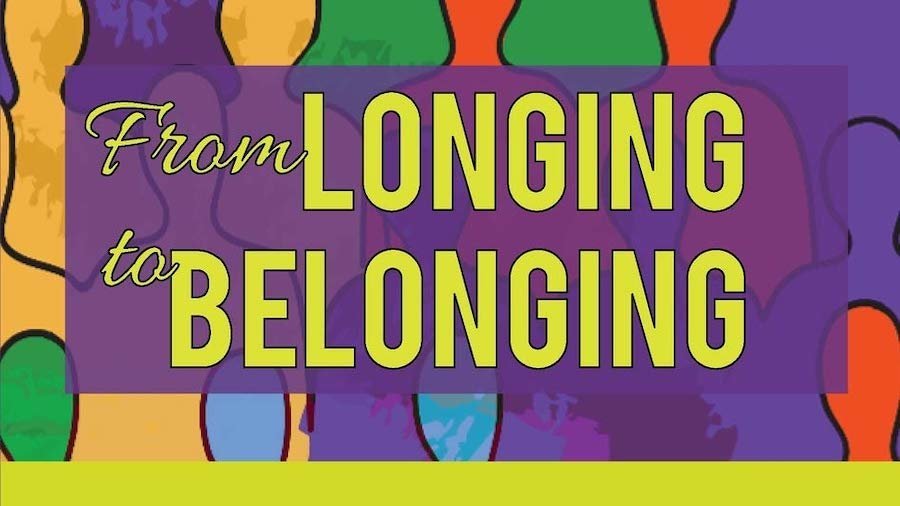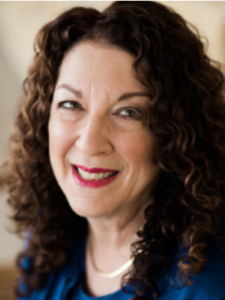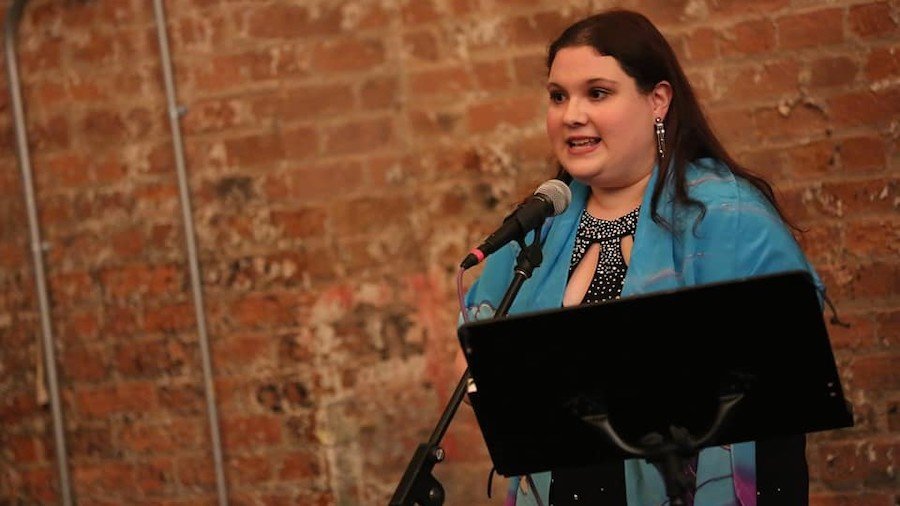This week’s Shabbat Smile is written by Adam Fishbein, a self-advocate and RespectAbility Fellow.
My religious school experience at Congregation Kol Ami in Elkins Park, PA had its ups and downs. As a child with multiple disabilities that made it difficult, and often disruptive, for me to function in a classroom environment, my parents initially had to push the synagogue to accept my differences and adapt to them. They would have constant meetings with the religious school director about my disruptive behavior and how to handle it. Then, in third grade, the then-new cantor at my synagogue, Rebecca Schwartz, started a student choir. She drew me in through her welcoming spirit and love for music. I found instantaneous inspiration. Sunday choir rehearsal became my favorite time of the week. I loved the process of learning, practicing and, eventually, singing Jewish music at Friday night Shabbat services. I found the focus I lacked in secular and religious school. I found acceptance from my fellow choir members. I found something I was good at and, most importantly, I found the voice that would shape my future.
Meanwhile, my parents and religious school staff worked diligently to adapt the religious school curriculum to my needs. While the student choir had opened the door to my synagogue, my fifth grade (and favorite) religious school teacher, Roz Holtzman, led me further inside during sixth and seventh grade, through my one-on-one instruction and Bar Mitzvah prep. This flexibility and reduced-distraction environment allowed me to learn more effectively and become a Bar Mitzvah at the end of seventh grade, despite my increasing behavioral challenges in adolescence with Tourette Syndrome Repeated Anger-Generated Episodes (RAGEs) at home and school. [continue reading…]


